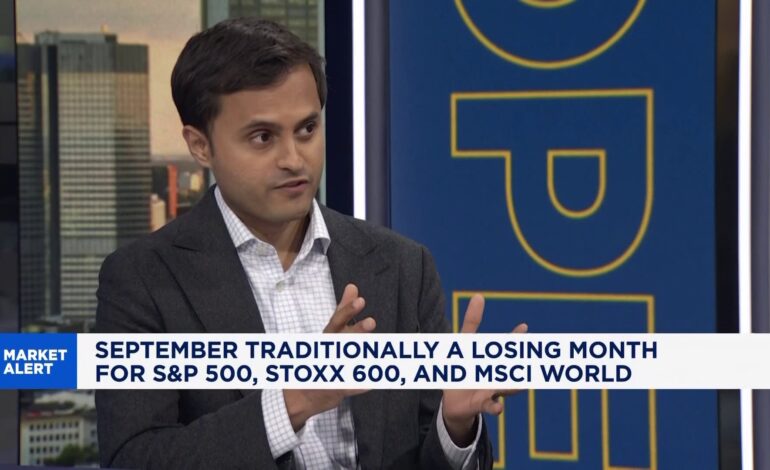September’s Stock Market Performance: Debunking the Myths

September has long been considered a challenging month for stocks, often attributed to the so-called “September effect.” New analysis by CNBC examines the accuracy of this perception by delving into historical data and trends in the stock market.
Analyzing the September Effect
Statistically, September has been a poor performer for equities over the years. Historical data shows that since 1945, the S&P 500 index has recorded an average decline of approximately 0.5% in September. This trend raises questions about whether investors should brace for a downturn each year as summer ends.
Investment analysts recognize that various factors contribute to this pattern. Typically, September marks the end of the third quarter and the beginning of a new fiscal year for many institutional investors. Such transitions can lead to increased volatility as funds are reallocated and positions are adjusted.
Additionally, September often coincides with heightened market activity following the summer lull. This shift can result in significant fluctuations. For instance, in 2023, the S&P 500 experienced a notable decline of 3.5% in September, continuing the trend observed in previous years.
Understanding Market Sentiment
Market sentiment plays a crucial role in stock performance during this month. With many investors returning from vacation, the shift in trading dynamics can lead to increased selling pressure, further exacerbating declines. Financial analysts note that while the September effect is a recognized trend, it does not guarantee losses. Some years deviate significantly from this pattern, highlighting the importance of considering broader economic conditions.
For example, in 2021, the S&P 500 rose by 2.2% in September, suggesting that not all market movements conform to historical trends. This variability underscores the complexity of stock market behavior and challenges the notion that September is universally detrimental.
While historical data supports the idea of September being a difficult month for equities, investors are cautioned against making decisions based solely on tradition. Understanding the underlying factors and current market conditions is essential for informed investment strategies.
As analysts continue to explore this phenomenon, the data suggests that while September may have its challenges, it is not a month to be avoided outright. Instead, investors should remain vigilant and prepared to navigate the potential ups and downs that accompany this transitional period in the market.






